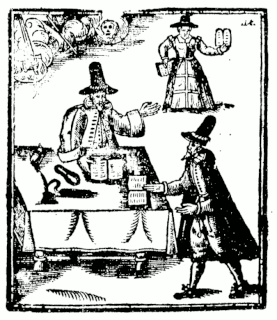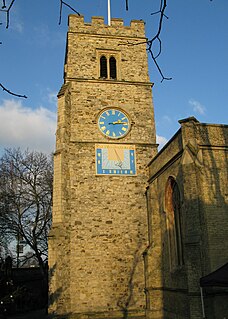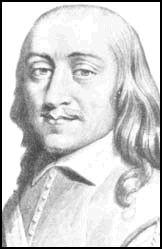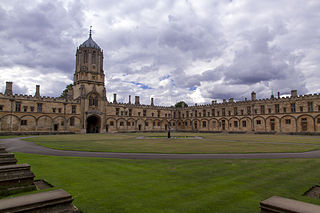See also
Surname list
This page lists people with the surname Rainsborough. If an internal link intending to refer to a specific person led you to this page, you may wish to change that link by adding the person's given name(s) to the link.
Rainsborough, or spelling variations, may refer to:

The Levellers were a political movement active during the Wars of the Three Kingdoms who were committed to popular sovereignty, extended suffrage, equality before the law and religious tolerance. The hallmark of Leveller thought was its populism, as shown by its emphasis on equal natural rights, and their practice of reaching the public through pamphlets, petitions and vocal appeals to the crowd.
The name Trollope is derived from the place-name Troughburn, in Northumberland, England, originally Trolhop, Norse for "troll valley". The earliest recorded use of the surname is John Andrew Trolope (1427–1461) who lived in Thornlaw, Co. Durham and Sir Andrew Trollope who was an English soldier during the later stages of the Hundred Years' War and at the time of the Wars of the Roses.

Sir Charles Lucas was an English soldier, a Royalist commander in the English Civil War.

Lister or Lyster is an English occupational surname, and may refer to a textile dyer, from the Middle English word "litster", meaning to dye. It dates back to the 13th century in Scotland with the recording of Aleyn le Littester of Edinburghshire who rendered homage to the Interregnum Government in 1296, and to the 14th century in England.

The Putney Debates, which took place from 28 October to 8 November 1647, were a series of discussions over the political settlement that should follow Parliament's victory over Charles I in the First English Civil War. The main participants were senior officers of the New Model Army who favoured retaining Charles within the framework of a Constitutional monarchy, and radicals such as the Levellers who sought more sweeping changes, including One man, one vote and Freedom of thought, particularly in religion.

The Sealed Knot is a British historical association and charity, with many members from outside the United Kingdom, dedicated to costumed reenactment of battles and events surrounding the English Civil War.

Vice-Admiral Thomas Rainsborough, or Rainborowe, was a prominent figure in the First English Civil War and the leading spokesman for the Levellers in the Putney Debates.
Crosland or Crossland is a surname, and may refer to

The second and longest siege of Worcester took place towards the end of the First English Civil War, when Parliamentary forces under the command of Thomas Rainsborough besieged the city of Worcester, accepting the capitulation of the Royalist defenders on 22 July. The next day the Royalists formally surrendered possession of the city and the Parliamentarians entered Worcester 63 days after the siege began.
Major William Rainsborowe, or Rainborowe, was an officer in the English Navy and New Model Army in England during the English Civil War and the Interregnum. He was a political and religious radical who prospered during the years of the Parliamentary ascendancy and was an early settler of New England in North America.
Captain William Rainsborough was an English Captain and Vice-Admiral in the Royal Navy, English ambassador to Morocco and politician who sat in the House of Commons from 1640 to 1642.

The siege of Oxford comprised the English Civil War military campaigns waged to besiege the Royalist controlled city of Oxford, involving three short engagements over twenty-five months, which ended with a Parliamentarian victory in June 1646.
Events from the year 1646 in England. This is the fifth and last year of the First English Civil War, fought between Roundheads (Parliamentarians) and Cavaliers.
Wainwright is an Anglo-Saxon occupational surname derived from the pre-7th century Old English word waegnwyrhta. The prefix, "waeg(e)n/waen, refers to a vehicle/wagon, common in its time as being horse-driven and four-wheeled. The suffix, wyrhta/wright, refers to a maker/builder. The earliest public record of the name dates to 1237 in Essex. Variations include Wainewright, Wainright, Waynewright, Wainwrigt and Winwright. Notable people with the surname include:
Cubitt is a surname, and may refer to:
Hamblin is a surname. Notable people with the surname include:
Andrewes is a surname, and may refer to:
Lubbock is an English surname. Notable persons with that surname include:
Wentworth is a surname which may refer to:
Lakin is a surname. People with the surname are as follows: